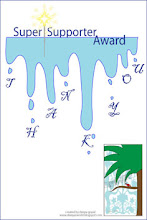Alas!
A Tribe is Wiped-Out!!!
The last member of a unique aboriginal tribe has died on the Andaman Islands…
Boa Sr, who died last week aged around 85, was the last speaker of ‘Bo’, one of the ten Great Andamanese languages. The Bo are thought to have lived in the Andaman Islands for as much as 65,000 years, making them the descendants of one of the oldest human cultures on Earth.
Boa Sr was the oldest of the Great Andamanese, who now number just 52. Originally ten distinct tribes, the Great Andamanese were 5,000 strong when the British colonized the Andaman Islands in 1858. Most were killed or died of diseases brought by the colonizers.
Having failed to ‘pacify’ the tribes through violence, the British tried to ‘civilize’ them by capturing many of them and keeping them in an ‘Andaman Home’. Of the 150 children born in the home, none lived beyond the age of two. The surviving Great Andamanese depend largely on the government for food and shelter, and abuse of alcohol is rife.
Boa Sr survived the Asian tsunami of 26, December 2004, and told linguists, “We were all there when the earthquake came. The eldest told us ‘the Earth would part, don’t run away or move’. The elders told us, that’s how we know.”
Linguist Prof. Anvita Abbi, who knew Boa Sr for many years, said in an interview to the Hindu, “Since she was the only speaker of ‘Bo’, she was very lonely as she had no one to converse with… Boa Sr had a very good sense of humor and her smile and full throated laughter were infectious.”
“You cannot imagine the pain and anguish that I spend each day in being a mute witness to the loss of a remarkable culture and unique language.”
Boa Sr told Abbi she felt the neighboring Jarawa tribe, who have not been decimated, were lucky to live in their forest away from the settlers who now occupy much of the Islands.
Stephen Corry, Director of ‘Survival International’, an organization that supports tribes worldwide, said, “The Great Andamanese were first massacred and then all but wiped out by paternalistic policies which left them ravaged by epidemics of diseases, and robbed of their land and independence.”
“With the death of Boa Sr and the extinction of the Bo language, a unique part of human society is now just a memory. Boa’s loss is a bleak reminder that we must not allow this to happen to the other tribes of the Andaman Islands.”
“One of the world's oldest dialects, which trace its origins to tens of thousands of years ago, has become extinct after the last person to speak it died on a remote Indian island.”
She died last week in Port Blair, the capital of Andaman and Nicobar Islands. The Great Andamanese had the biggest population of all the island tribes until the early 20th century.
As I’ve written in my earlier posts, too, the cluster of more than 572 islands, of which only about three dozen are inhabited, the Andaman and Nicobar Islands are home to six tribes of Mongoloid and African origin, who have lived here for thousands of years.
The current home of the Great Andamanese is Strait Island, a small island in the Middle Andaman Region.
It indeed is very distressing to see that such rich heritage has been lost and we could not preserve it. We have not just lost a person in Boa, but also many unknown ancient facts and hidden secrets of environment which we will never be able to know, now. I hope I’m wrong.
Indigenous people the world over have received a raw deal at the hands of the colonizers. The death of languages in the Andamans is a huge setback for the common human heritage. Languages do not only help one to communicate but are also are a loaded repository of knowledge. A great deal can be learnt from the fast vanishing languages.
Haplessly, preservation of languages also is not a priority in the governmental policies apart from the scores of other such grossly neglected issues. It is unfortunate that we are brazenly failing in our efforts to conserve these unique languages.
It’s indeed a very gloomy day when a language dies because with that a unique culture, society and value systems also die. The menace is very real and due to happen to the languages in the mainland India too. All our languages are in danger of dying out if the onslaught of English is not reversed.
It can be lucidly deciphered that in the cities all over India, the Indian languages are already dying amongst the English educated families. Most of these families speak a very pidgin variety of the language with English words predominating. The younger generation is getting further out of touch with the 'mother tongue'. When the mother herself cannot speak that language, what happens to the 'Mother Tongue'! The generations to come would get further aloof from their mother tongue.
If you look around, the entire public space is dominated by English. Indian languages are restricted now to just being 'spoken'. None of the so called elite write or read their mother tongue. Since they are the role models for the others lower down the ladder, this trend will only go burgeoning. This is the common state of affairs even in the rural areas and mofussil towns in the country.
My rueful guess is that in 50 years from now, all Indian Languages will be near extinction unless something far-reaching is done to reverse this trend, on a war-footing. Is anyone listening…?
Stats & figures courtesy: http://www.msnbc.msn.com













